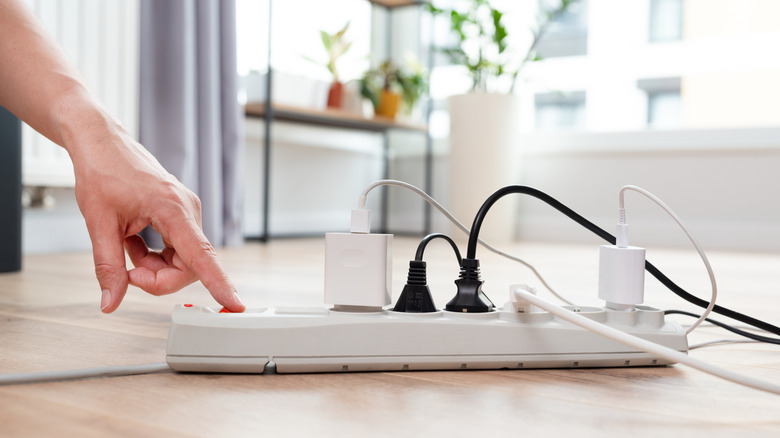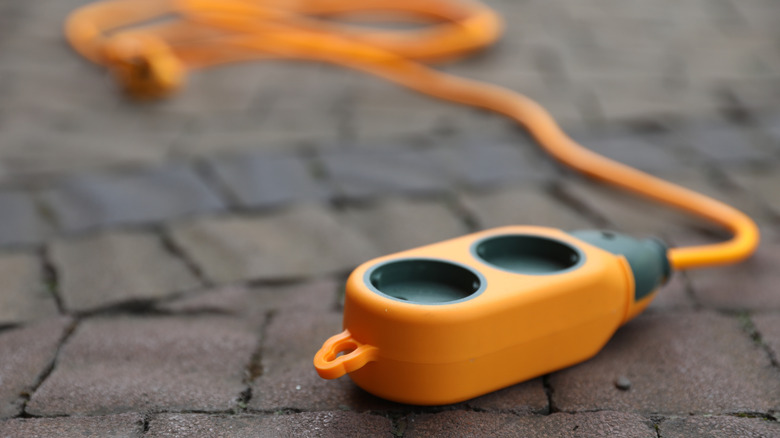How Long Can You Use An Extension Cord (& When Does It Get Deadly?)
Extension cords are a convenient solution for powering up devices when outlets are just out of reach, but they come with their own set of risks if used improperly. While many of us rely on them for everything from holiday lights to home office setups, few consider their potential hazards. In fact, extension cords are not meant to be permanent fixes. More than 3,000 home fires start from extension cords every year, according to the Electrical Safety Foundation. Understanding how long you can safely use an extension cord — and recognizing when it crosses the line into danger — is crucial for preventing electrical shocks or fire hazards around the home.
In workplaces, the Occupational Safety and Health Administration (OSHA) sets standards for the use of extension cords. For instance, cords can't be used for more than 90 days for holiday decorations or similar non-essential purposes. They're allowed when temporary wiring is needed, such as during emergencies or building renovations, but must be removed once that's over. If a cord is used for non-emergency reasons for more than 90 days, the rules state that permanent wiring should be installed instead. While these rules were written for workplaces, you should follow similar guidelines at home. In short, don't use extension cords as substitutes for permanent wiring. When you're not using them, make sure to store and organize extension cords well so they don't get damaged.
How to use extension cords safely
Extension cords can not only cause fires, but they can also shock you. There are two main ways this can happen: when a cord becomes damaged or when it's overloaded. If you need to use an extension cord temporarily, there are a few important steps to follow first. Start by carefully inspecting the cord for any damage. If it's damaged, be very careful. Just a single exposed strand could shock you.
Even if the extension cord looks fine, always check the wattage rating of the appliance you're planning to plug in and ensure it matches the cord's rating. Different extension cords have different wattage ratings, and using the wrong one can cause the cable to overheat and even start a fire. The ratings depend on the amperage and wattage the cord can safely handle. You can find wattage ratings on the labels and tags of both cords and electrical devices. And remember, some appliances should never be used with extension cords. These include cooking appliances like microwaves as well as space heaters, which should always be plugged directly into an outlet and never into a power strip or extension cord.
Another reason not to use an extension cord as a permanent solution is that it should never be covered by carpets or furniture, as this increases the risk of overheating and starting a fire. Similarly, cords shouldn't be placed in doorways or anywhere they might get damaged by people stepping over them. Avoiding day-to-day wear and tear when using extension cords can be difficult, so consider wiring new electrical outlets instead.

